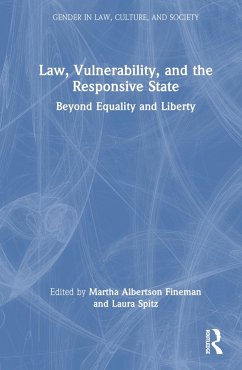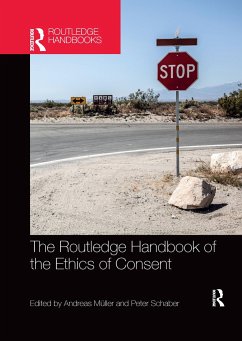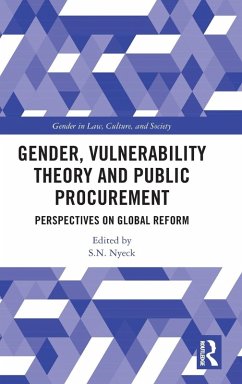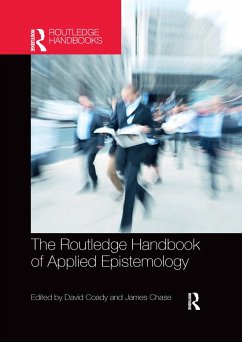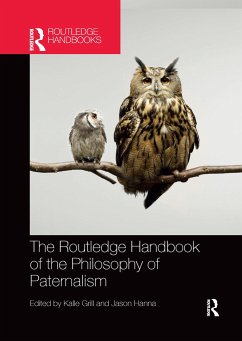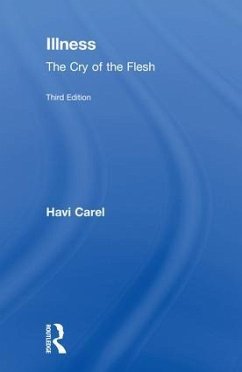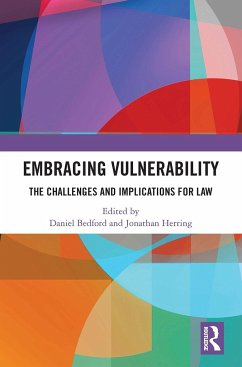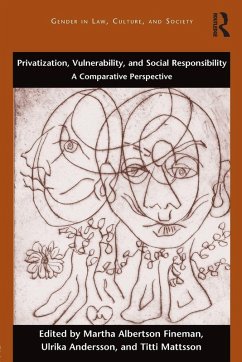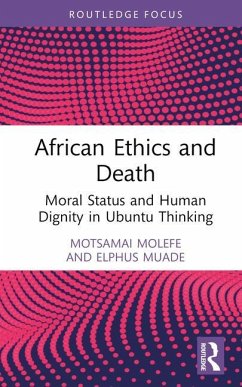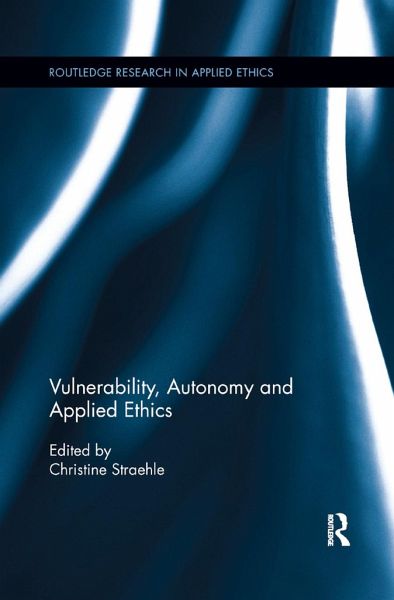
Vulnerability, Autonomy, and Applied Ethics
Versandkostenfrei!
Versandfertig in 6-10 Tagen
48,99 €
inkl. MwSt.
Weitere Ausgaben:

PAYBACK Punkte
24 °P sammeln!
Vulnerability is an important concern of moral philosophy, political philosophy and many discussions in applied ethics. Yet the concept itself-what it is and why it is morally salient-is under-theorized. Vulnerability, Autonomy, and Applied Ethics brings together theorists working on conceptualizing vulnerability as an action-guiding principle in these discussions, as well as bioethicists, medical ethicists and public policy theorists working on instances of vulnerability in specific contexts. This volume offers new and innovative work by Joel Anderson, Carla Bagnoli, Samia Hurst, Catriona Mac...
Vulnerability is an important concern of moral philosophy, political philosophy and many discussions in applied ethics. Yet the concept itself-what it is and why it is morally salient-is under-theorized. Vulnerability, Autonomy, and Applied Ethics brings together theorists working on conceptualizing vulnerability as an action-guiding principle in these discussions, as well as bioethicists, medical ethicists and public policy theorists working on instances of vulnerability in specific contexts. This volume offers new and innovative work by Joel Anderson, Carla Bagnoli, Samia Hurst, Catriona Mackenzie and Christine Straehle, who together provide a discussion of the concept of vulnerability from the perspective of individual autonomy. The exchanges among authors will help show the heuristic value of vulnerability that is being developed in the context of liberal political theory and moral philosophy. The book also illustrates how applying the concept of vulnerability to some of the most pressing moral questions in applied ethics can assist us in making moral judgments. This highly innovative and interdisciplinary approach will help those grappling with questions of vulnerability in medical ethics-both theorists and practitioners-by providing principles along which to decide hard cases.




